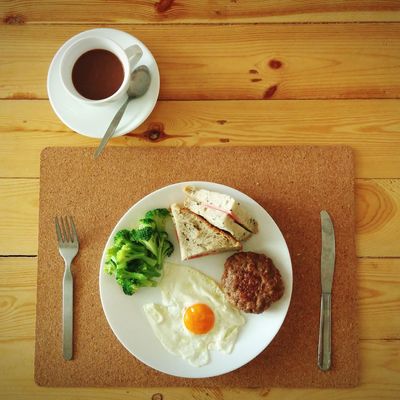
The divide between morning people and evening people isn’t quite as clear-cut as we make it out to be: As Science of Us has previously reported, a small minority of people are purely one or the other; more often, they’ll fall somewhere in between.
Still, unless you’re smack-dab in the middle of the spectrum, you probably identify more with one chronotype than the other — which means you probably share more traits with with one, too. And research has shown that being more of a morning person has its advantages beyond making it easier to resist the urge to hit snooze: On average, early risers tend to be more conscientious than their night-owl counterparts, as well as more punctual (probably because they can actually wake up on time). And according to a study recently published in the journal Obesity and highlighted by the New York Times, they may also be better at choosing healthy food over junk.
The study authors monitored the eating habits of roughly 2,000 volunteers, who also filled out a survey designed to determine their chronotype. Overall, there wasn’t really a significant difference between morning people and night owls in terms of the total number of calories consumed per day — but there was a difference in the type of food each group gravitated toward. The Times explained:
[O]n weekdays, evening types ate less in the morning and tended to choose breakfast foods that were higher in sugar and lower in fiber, carbohydrates and fats, including saturated fat. By evening, the night owls were eating more sugar and fats than the morning people.
On weekends, the differences were even greater. Evening people ate significantly more sugar and fats, had more irregular mealtimes, and ate meals and snacks twice as often as morning people.
One possible explanation for the difference: Nighttime people just weren’t made for breakfast. “Evening types are more prone to live against their internal biological time,” lead study author Mirkka Maukonen, a researcher at Finland’s National Institute for Health and Welfare, told the paper. “Our society is pretty much structured to suit morning types better.” Anyone who’s ever woken up 30 minutes past their alarm, hurriedly shoved some sugar cereal in their mouths, and run/stumbled out the door would probably agree.




